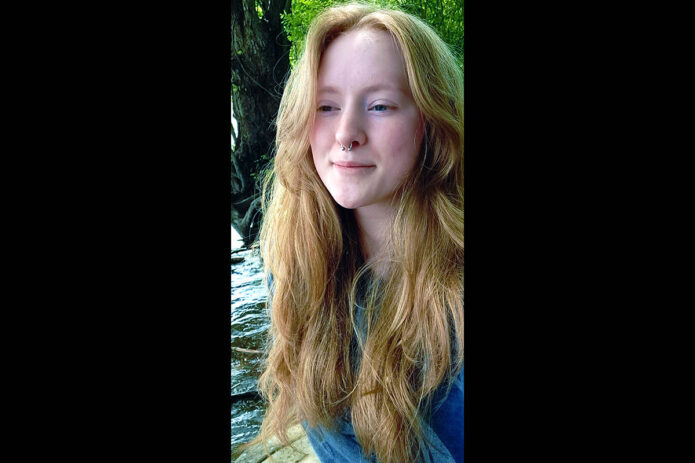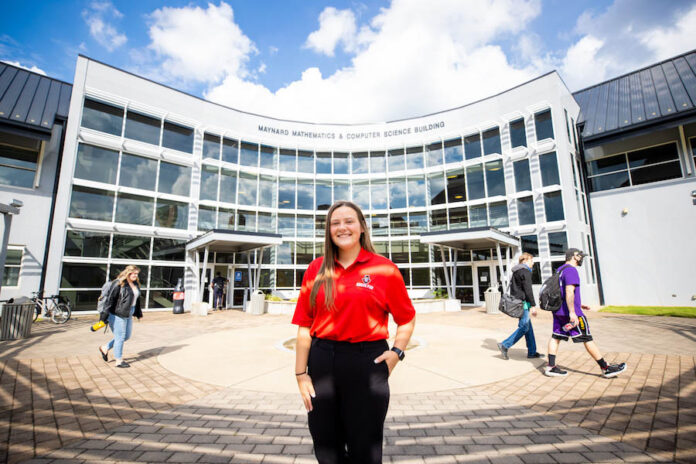 Clarksville, TN – The Austin Peay State University (APSU) College of Science, Technology, Engineering and Mathematics (STEM) this fall launched a new program focused on helping high-achieving students in their transition to university life.
Clarksville, TN – The Austin Peay State University (APSU) College of Science, Technology, Engineering and Mathematics (STEM) this fall launched a new program focused on helping high-achieving students in their transition to university life.
The program – named STEM Scholars – strives to connect the students with other high achievers, upper-level STEM students, and STEM faculty and staff while giving them research and leadership opportunities.
“I would say that the STEM Scholars program has done just that,” she said. “I have been privileged to research with Dr. (Anuradha) Pathiranage as a freshman this semester, which is an opportunity that would not be available otherwise.”
Beck helped to present that research – along with fellow STEM Scholar Avery Moser – at the 2021 Tennessee Academy of Science annual meeting in early November at Tennessee Tech University. You can read about the research below.
“Neither I nor Avery had done anything of the sort, so it was definitely a learning experience,” Beck said. “Through presenting, I have learned that the STEM community is very welcoming to new researchers and their ideas. We had the opportunity to meet and talk with other students about their research projects, which allowed us to expand our thinking for future research.”
Researching with Professors, meeting Upper-Level Mentors

The STEM Scholar program selected 31 students at the beginning of the semester, said Pathiranage, an assistant professor in APSU’s Department of Chemistry and program adviser along with GIS Center Director Mike Wilson.
Laina Skaggs, a biology major from Portland, Tennessee, also presented at the Tennessee Academy of Science annual meeting. She presented research she’s doing with Dr. Ramanjit Sahi from the Department of Mathematics and Statistics. You can read about the research below.
“I joined the STEM Scholars program so that I could get exposure to the College of STEM,” said Skaggs, who also is researching with Dr. Gilbert Pitts in the Department of Biology. “The program introduced me to professors with whom I can do research.”
In addition to meeting with faculty from across the college, STEM Scholars also work with 15 upper-level students such as mathematics junior Alex Edwards.
The program also is helping with Edwards’ goal of becoming a math teacher in her hometown, Dickson, Tennessee.
“As I grew as a student, I realized my passion was to be a math teacher and coach like the ones that I loved so much as a student,” she said. “I decided to be a part of the first group of STEM Scholars mentors because I really wished I had someone to be able to talk to and ask questions, that wasn’t a professor, when I was a freshman.”
To read more about what the STEM Scholar program offers incoming students, visit the program’s webpage.
STEM Scholar research at the Tennessee Academy of Science
Freshmen Avery Moser and Emelia Beck worked with Dr. Anuradha Pathiranage to present a poster titled “Understanding the Chemistry Behind Fabric Dyeing Process.” The purpose of their experiment was to find the best method of dyeing fabric samples by using synthetic dye solutions to what conditions best suit the fabric and the dye.
Freshman Laina Skaggs worked with Dr. Ramanjit Sahi to give an oral presentation titled “Severe Precipitation Events and Their Effects on Waterborne Illnesses.” The research used statistical analysis on historical data to predict the relationship between climate change’s severe rain patterns and waterborne acute gastrointestinal infections across the world.
To read more about either team’s research, visit the Tennessee Academy of Science program page.



